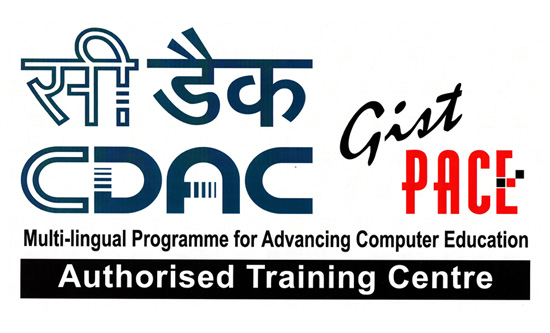C++ Programming Language Industrial Training
C++, as we all know is an extension to C language and was developed by Bjarne stroustrup at bell labs. C++ is an intermediate level language, as it comprises a confirmation of both high level and low level language features. C++ is a statically typed, free form, multiparadigm, compiled general-purpose language.
GN Infotech provides the best C++ Training in Khanna with below mentioned course curriculum. GN Infotech labs are equipped with latest software so that students can get 100% practical training.
At the completion of training the participant will exhibit the following :
- - Understanding of OOPs concepts
- - Implements classes and functions
- - Using static and dynamic features of OOPs
- - Implements File Streams & I/O Streams
- - Using Libraries functions
- - Create Template & Exception Handling
WHY C++ LANGUAGE TRAINING AT GN INFOTECH ?
- - Industry Compliant Syllabus
- - Multi-Platform Demonstration
- - Product Based Training
- - Real-Time Case Studies
- - Use of Latest Tools & Technology
- - LCD equipped class room
- - Unlimited Lab facility
- - Faculty drawn from Industries
- - Daily Handouts & Lab Exercise
- - Workshops on New Technologies
TARGET AUDIENCE :
- - Entry Level Programmer
What is object oriented programming?
Why do we need object oriented.
Programming characteristics of object-oriented languages.
Output using cout.
Directives.
Input with cin.
Type bool.
The setw manipulator.
Type conversions.
Returning values from functions.
Reference arguments.
Overloaded function.
Inline function.
Default arguments.
Returning by reference.
Implementation of class in C++.
C++ Objects as physical object.
C++ object as data types constructor.
Object as function arguments.
The default copy constructor.
Returning object from function.
Structures and classes.
Classes objects and memory static class data.
Const and classes.
Arrays as class Member Data
Arrays of object,string
The standard C++ String class
Overloading unary operations.
Overloading binary operators.
Explicit and Mutable.
Concept of inheritance.
Derived class and based class.
Derived class constructors, member function.
Class hierarchies, inheritance and graphics shapes.
public and private inheritance.
Classes within classes.
Inheritance and program development.
Addresses and pointers.
The address of operator and pointer and arrays.
Memory management : New and Delete, pointers to objects, debugging pointers.
Virtual Function.
friend function, Static function, Assignment and copy initialization.
this pointer, dynamic type information.
Streams classes, Stream Errors, Disk File I/O with streams.
File pointers, error handling in file I/O with member function.
Overloading the extraction and insertion operators.
Memory as a stream object.
Command line arguments, and printer output.
Function and Class Templates
Defining Templates
Template Instantiation
Template Parameters
Template Arguments
Specialization
Default Arguments of Templates
Explicit Instantiation
Traditional Error Handling
Exception Handling
Exception Handlers
Throwing and Catching Exceptions
Nesting Exception Handling
Defining Your Own Error Classes
Standard Exception Classes


